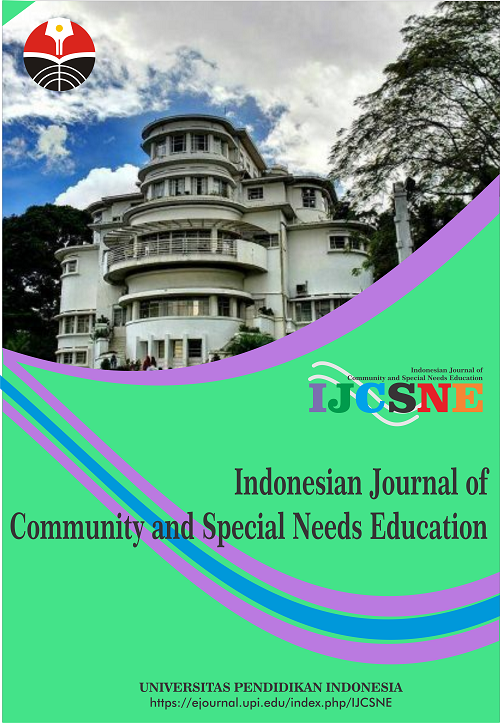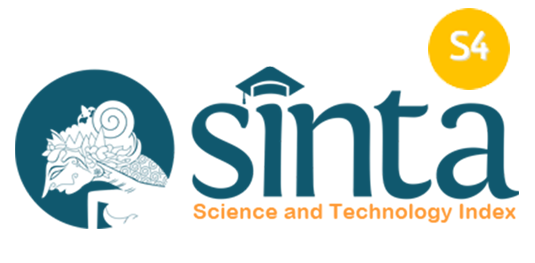The Impact of Yoga on Mental Health
Abstract
Keywords
Full Text:
PDFReferences
Abdulbaki, H., and Berger, J. (2020). Using culture-specific music therapy to manage the therapy deficit of post-traumatic stress disorder and associated mental health conditions in Syrian refugee host environments. Approaches: An Interdisciplinary Journal of Music Therapy, 12(2), 21-23.
Chiesa, A., and Serretti, A. (2009). A systematic review of neurobiological and clinical features of mindfulness meditations. Psychological Medicine, 40(8), 1239-1252.
Cohen, S. (2004). Social relationships and health. American Psychologist, 59(8), 676-684.
Craft, L. L., and Perna, F. M. (2004). The benefits of exercise for the clinically depressed. Primary Care Companion to the Journal of Clinical Psychiatry, 6(3), 104.
Cramer, H., Lauche, R., Langhorst, J., and Dobos, G. (2013). Yoga for depression: A systematic review and meta-analysis. Depression and Anxiety, 30(11), 1068-1083.
Gallegos, A. M., Heffner, K. L., Cerulli, C., Luck, P., McGuinness, S., and Pigeon, W. R. (2020). Effects of mindfulness training on posttraumatic stress symptoms from a community-based pilot clinical trial among survivors of intimate partner violence. Psychological Trauma: Theory, Research, Practice, and Policy, 12(8), 859.
Gujral, S., McAuley, E., Oberlin, L. E., Kramer, A. F., and Erickson, K. I. (2018). The role of brain structure in predicting adherence to a physical activity regimen. Psychosomatic Medicine, 80(1), 69.
Hofmann, S. G., Sawyer, A. T., Witt, A. A., and Oh, D. (2010). The effect of mindfulness-based therapy on anxiety and depression: A meta-analytic review. Journal of Consulting and Clinical Psychology, 78(2), 169-183.
Johnson, E. K., Jones, J. E., Seidenberg, M., and Hermann, B. P. (2004). The relative impact of anxiety, depression, and clinical seizure features on health‐related quality of life in epilepsy. Epilepsia, 45(5), 544-550.
Kamraju, M., Ali, M. A., and Krishnaiah, J. (2022). Different types of yoga as a sport. ASEAN Journal of Physical Education and Sport Science, 1(1), 51-58.
Kamraju, M. (2023a). Yoga and weight management. ASEAN Journal of Physical Education and Sport Science, 2(1), 75-80.
Kamraju, M. (2023b). The impact of yoga on physical health. ASEAN Journal of Physical Education and Sport Science, 2(2), 81-88.
Kiecolt-Glaser, J. K., Christian, L., Preston, H., Houts, C. R., Malarkey, W. B., Emery, C. F., and Glaser, R. (2010). Stress, inflammation, and yoga practice. Psychosomatic Medicine, 72(2), 113-121.
Kinser, P. A., Bourguignon, C., Whaley, D., Hauenstein, E., Taylor, A. G., and Steeves, R. (2014). Feasibility, acceptability, and effects of gentle Hatha yoga for women with major depression: Findings from a randomized controlled mixed-methods study. Archives of Psychiatric Nursing, 28(6), 377-384.
Pascoe, M. C., Bauer, I. E., and Knapp, A. A. (2017). Yoga, mindfulness-based stress reduction and stress-related physiological measures: A meta-analysis. Psych Neuroendocrinology, 86, 152-168.
Riley, K. E., Park, C. L., and Wilson, A. (2016). Mindfulness and yoga for cancer patients and survivors: A systematic review and meta-analysis. Oncology Nursing Forum, 43(5), 194-204.
Salmon, P., Lush, E., Jablonski, M., and Sephton, S. E. (2009). Yoga and mindfulness: Clinical aspects of an ancient mind/body practice. Cognitive and Behavioral Practice, 16(1), 59-72.
Sengupta, P. (2012). Health impacts of yoga and pranayama: A state-of-the-art review. International Journal of Preventive Medicine, 3(7), 444.
Sharma, M. (2014). Yoga as an alternative and complementary approach for stress management: A systematic review. Journal of Evidence-Based Complementary and Alternative Medicine, 19(1), 59-67.
Sharma, V. K., Rajajeyakumar, M., Velkumary, S., Subramanian, S. K., Bhavanani, A. B., Sahai, A., and Thangavel, D. (2014). Effect of fast and slow pranayama practice on cognitive functions in healthy volunteers. Journal of Clinical and Diagnostic Research: JCDR, 8(1), 10.
Streeter, C. C., Gerbarg, P. L., Saper, R. B., Ciraulo, D. A., and Brown, R. P. (2010). Effects of yoga on the autonomic nervous system, gamma-aminobutyric-acid, and allostasis in epilepsy, depression, and post-traumatic stress disorder. Medical Hypotheses, 78(5), 571-579.
Taher, A. V., Ahmadi, M. K., and Zamir, F. P. (2015). Effects of multisensory stimulation on cognition function, depression, anxiety and quality of life in elderly persons with dementia. International Journal of Sport Studies, 5(3), 355-360.
Van der Kolk Laura, B. A., West, J., Rhodes, A., Emerson, D., Suvak, M., and Spinazzola, J. (2014). Yoga as an adjunctive treatment for posttraumatic stress disorder: A randomized controlled trial. The Journal of Clinical Psychiatry, 75(6), 559-565.
Wynn, G. H. (2015). Complementary and alternative medicine approaches in the treatment of PTSD. Current Psychiatry Reports, 17, 1-7.
DOI: https://doi.org/10.17509/ijcsne.v3i2.57747
Refbacks
- There are currently no refbacks.
Copyright (c) 2023 Universitas Pendidikan Indonesia

This work is licensed under a Creative Commons Attribution-ShareAlike 4.0 International License.















